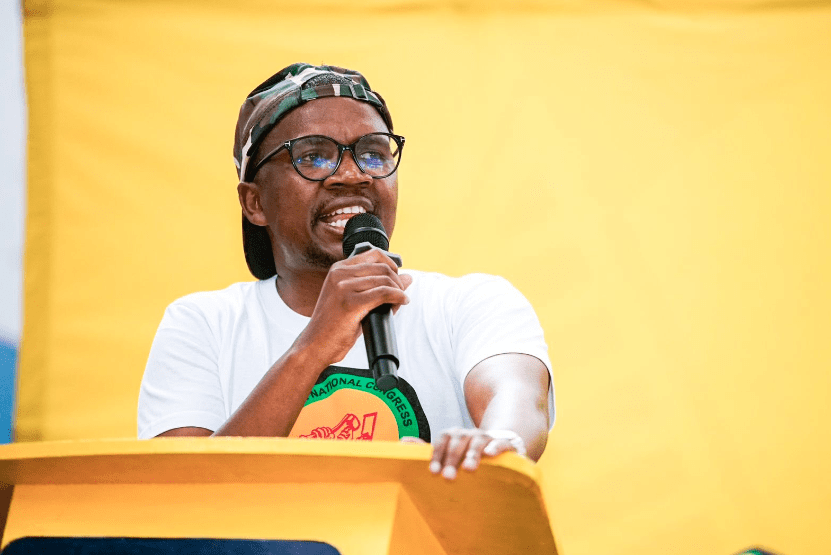
African Development Bank Group (www.AfDB.org) President Dr Akinwumi Adesina has assured South Africa of the Bank’s strong support as the country transitions from fossil fuel to renewable energy.
Adesina told Minister for Mineral Resources and Energy, Gwede Mantashe, that the Bank was in the process of setting up an African Energy Transition Facility to help South Africa secure adequate financing for its energy transition.
He said: “South Africa cannot and should not embark on the journey of energy transition without the necessary financial support.” He said through the African Energy Transition Facility, “South Africa can leverage on the $8.5 billion in grants from the G7 countries to generate all the money it needs for its just energy transition without getting into debt.”
The African Development Bank estimates that South Africa would need more than $30 billion for transition to renewable energy.
The Bank is financing several renewable energy projects in South Africa, including the 100 megawatt Sere wind power plant, the 100 megawatt Xina solar power concentrated power plant, and the award-winning 100 megawatt Red Stone solar project. The Bank is also preparing a $400 million package to support the country’s electricity utility company, Eskom, as it transitions to renewable energy.
Adesina and Minister Mantashe met in South Africa’s capital Pretoria, where they discussed a range of opportunities for the country, which relies on coal for 75% of its energy needs.
According to Mantashe, the government is committed to achieving a 15% reduction in coal power production and an 18% increase in renewable energy by 2030.
He said: “We want to move from high carbon to low carbon emission. The Just Energy Transition plan should be about people’s lives and livelihoods, particularly in coal mining areas. We must develop a concrete alternative economic program for communities in those areas.”
The minister said the government was planning to generate additional 1,500 megawatts of electricity from coal. “We want to be actively involved in the experiment for cleaner coal production technology, including carbon capture and storage…If the experiment works, we’ll expand it and that will reprieve coal as a commodity.”
The minister said gas and nuclear were part of South Africa’s energy mix. He described gas as a game changer for development and cited Mozambique, whose economic prospects have changed following gas discovery.
According to Adesina, solar power should be a key part of South Africa’s energy mix. “Be bold about solar power,” he said. “Africa today has no choice but to transition out of coal. But God is good to us. We have 11 terawatts of solar. That is Africa’s future. South Africa can help make that future happen. South Africa can become and should position itself to be the lead manufacturer of polysilicon.”
Polysilicon is used to manufacture solar panels and other products, which are currently imported mainly from China.
Mantashe told the African Development Bank Group president and his delegation that South Africa had discovered rare earth minerals, essential in manufacturing solar power components. “The minerals of the future that will contribute to a green economy are here,” he said.
The Bank Group chief and the minister also discussed the impact on Africa of Russia’s war in Ukraine, which has already led to an increase in the prices of food, fertilizer, oil and gas.
Adesina said the African Development Bank was developing a plan to raise $1 billion to fund emergency food production and avert a looming food crisis across Africa.
Minister Mantashe said the South African government was considering using 10 million barrels of its crude oil reserves to control the rising prices of petroleum by suspending all taxes and levies for two months.
Please find more images here (https://bit.ly/36X3wYh)
Distributed by APO Group on behalf of African Development Bank Group (AfDB).
Contact:
The Department of Communication and External Relations
African Development Bank
Email: [email protected]
About the African Development Bank Group:
The African Development Bank Group is Africa’s premier development finance institution. It comprises three distinct entities: the African Development Bank (AfDB), the African Development Fund (ADF) and the Nigeria Trust Fund (NTF). On the ground in 41 African countries with an external office in Japan, the Bank contributes to the economic development and the social progress of its 54 regional member states. For more information: www.AfDB.org
This Press Release has been issued by APO. The content is not monitored by the editorial team of African Business and not of the content has been checked or validated by our editorial teams, proof readers or fact checkers. The issuer is solely responsible for the content of this announcement.




















Discussion about this post